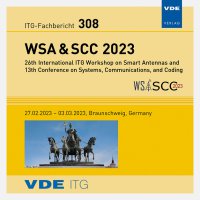Optimizing Serially Concatenated Neural Codes with Classical Decoders
Konferenz: WSA & SCC 2023 - 26th International ITG Workshop on Smart Antennas and 13th Conference on Systems, Communications, and Coding
27.02.2023–03.03.2023 in Braunschweig, Germany
Tagungsband: ITG-Fb. 308: WSA & SCC 2023
Seiten: 6Sprache: EnglischTyp: PDF
Autoren:
Clausius, Jannis; Geiselhart, Marvin; ten Brink, Stephan (Institute of Telecommunications, University of Stuttgart, Germany)
Inhalt:
For improving short-length codes, we demonstrate that classic decoders can also be used with real-valued, neural encoders, i.e., deep-learning based “codeword” sequence generators. Here, the classical decoder can be a valuable tool to gain insights into these neural codes and shed light on weaknesses. Specifically, the turbo-autoencoder is a recently developed channel coding scheme where both encoder and decoder are replaced by neural networks. We first show that the limited receptive field of convolutional neural network (CNN)-based codes enables the application of the BCJR algorithm to optimally decode them with feasible computational complexity. These maximum a posteriori (MAP) component decoders then are used to form classical (iterative) turbo decoders for parallel or serially concatenated CNN encoders, offering a close-to-maximum likelihood (ML) decoding of the learned codes. To the best of our knowledge, this is the first time that a classical decoding algorithm is applied to a non-trivial, real-valued neural code. Furthermore, as the BCJR algorithm is fully differentiable, it is possible to train, or fine-tune, the neural encoder in an end-to-end fashion.


